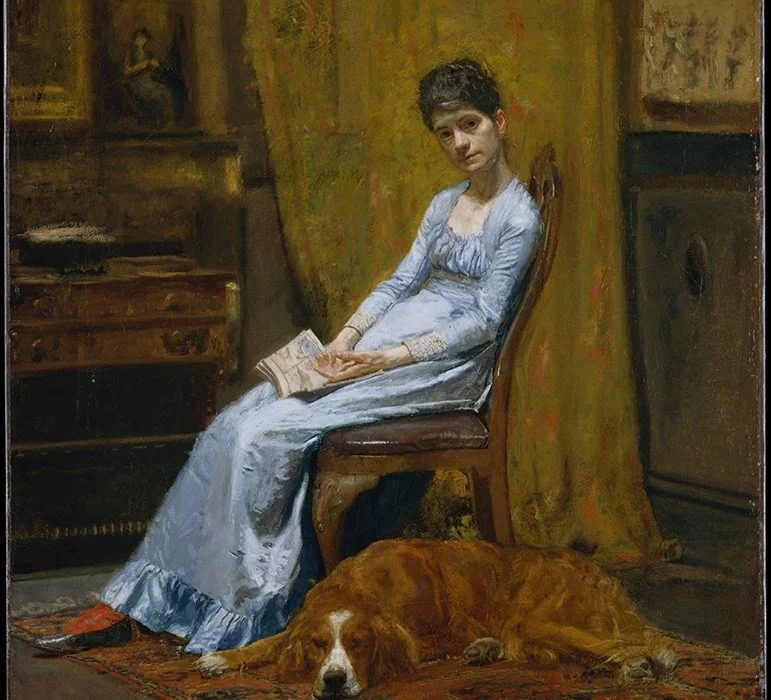Relationships • Compatibility
The Sorrows of Anxiously Attached People
There is a particularly poignant and tormented figure known in psychology as the ‘anxiously attached person’, who may be us, or someone we know. Their tragedy is that they are both deeply invested in finding a satisfying partner – and yet essentially unable to believe, in their hearts, that they could truly secure their loyalty.
The anxiously attached are extreme romantics: the ones who listen to the songs, who fall in love with strangers in supermarkets and libraries and who cannot (secretly perhaps) ever imagine a satisfied life on their own. However, for all their professed faith in love, as their name implies, they find it extremely hard to trust that love could eventually go right for them. And therefore, in the most shocking irony, they discover that it seldom does so.

The reason for their anxiety almost always lies in some form of painful letdown in childhood that has not been accurately charted or mourned. Perhaps their parents divorced. Or mother wasn’t very nice. Or father was cut off. Or someone died. Or a sibling stole all the love. Or there was a nice nanny but she was sent away. Something will have happened to fundamentally shake the anxious person’s faith in the possibility of being cared for reliably and steadily.
The anxious person therefore now approaches love with a mixture of enormous compensatory hope – and a misunderstood legacy of terror. Beneath their surface romanticism, they are perpetually afraid that the catastrophe that once occurred will unfold once more. And the more they love, the more they fear.
After a short honeymoon period, their love stories are liable to descend into a litany of preoccupations with the partner’s true intent:
— The partner is half an hour late with a text message: they are abandoning them.
— The partner was slightly off on the phone: they have found someone else.
— The partner has a party to go to to which they’re not invited: they’re mocking them.
— The partner was too tired for sex last night: they find them revolting.
Behind their complaints lie two primordial cries: ‘I’m not loved enough’ and ‘I’m about to be left.’
Unfortunately, the anxious do strictly nothing to help themselves be understood and sympathised with for these bellows. Instead of politely and gently detailing the episodes of childhood neglect that might have inspired them, they go on the attack.
Their clinical name is in this sense highly misleading, for the most visible sign of their condition is not anxiety, but anger. The anxious tend to be constantly, unrelentingly cross with their partners for their alleged insufficiencies. They upbraid them for being late, for not completing a task, for laughing at the wrong moment, for having the wrong sort of friends…
The anger is not always cleanly delivered. The anxious are among the world’s great sulkers. Panicked that they have been misunderstood, they are drawn to making themselves be so all over again. No one will get me, no one will care – and, in time, they don’t. In fury and grief, the anxious barricade themselves in the bathroom or refuse to pick up the phone, even as they crave for the partner to tell them they adore them, for them to keep calling back – and for them to somehow understand what has never been explained to them.
Certain anxious types may go in for high-handed lectures squarely and professorially explaining what is ‘wrong’ with their partner. As though they had recently completed a psychotherapy training, they may deliver speeches as to how their partner is ‘avoidant’ and ‘afraid of love,’ ‘defended’ and ‘emotionally immature,’ this in lieu of ever facing up to their own disavowed trepidations.
In extremis, anxious people may have an affair, not because they don’t love their partner, but because they’re so scared that they are not loved back, they need to find some way of escaping their feelings of exposure and potential humiliation. Their early experiences have taught them that it must always be better to keep two (or more) options at play.
There are naturally cases where the anxious are correct in their assessment of their partners. But in a great many scenarios, the anxious start with no inbuilt cause for complaint. The spectre is in their minds alone. They bring about their own disregard through its aggressive and exhausting apprehension.
Unsurprisingly, when relationships end (especially precipitously), it’s very often the anxious who have called time on them. And typically, they leave not because they want to but because – whatever the partner may implore them to believe at the moment of break up – they feel they are not wanted. In many a hallway, an anxious partner has told their soon-to-be ex that they are definitely not loved enough, even as the latter insist on their life that the opposite is the case.
The anxious are fated to move from partner to partner (multiple divorces are typical), never quite finding the intensity of affection and the reliability they need to assure them that they are safe and cared for, and that they are not about to be cast off as they once were.
As ever, the escape is through insight and timely admission. The hope is that the anxious person can learn to teach their partners what they need – rather than hastily doubling down on what they fear; the hope is that they will be able to gently seek reassurance before they give way to the impulse to attack, that they may develop the courage to ask for the love they so badly want – in the kind of patient, open-hearted tone that at last stands a chance of actually being heard.


























